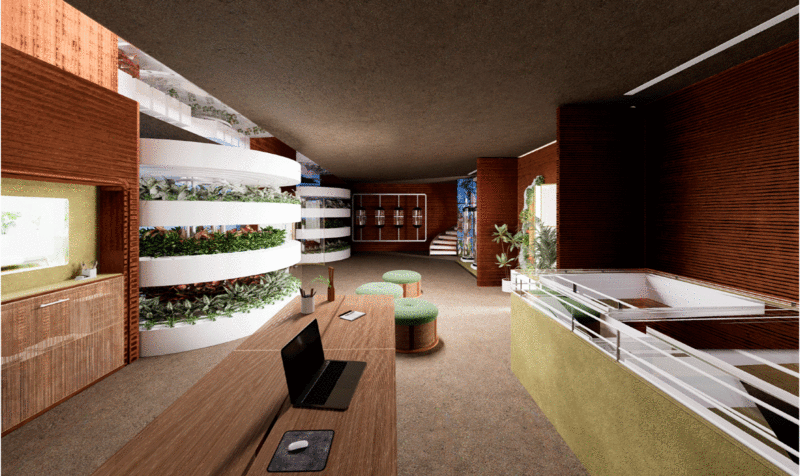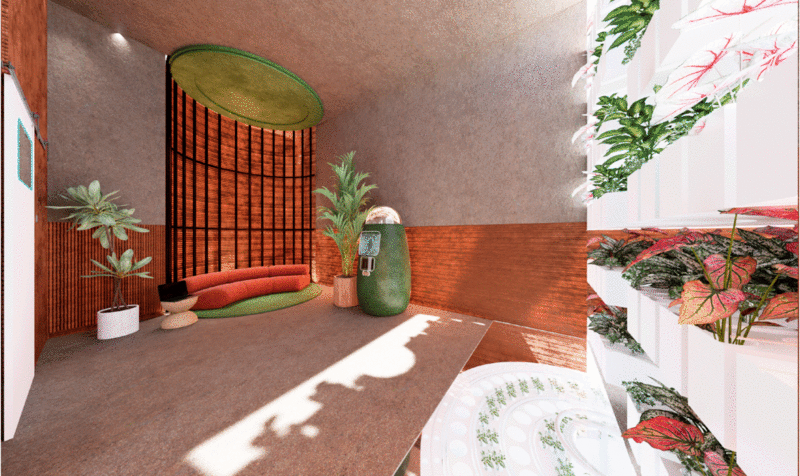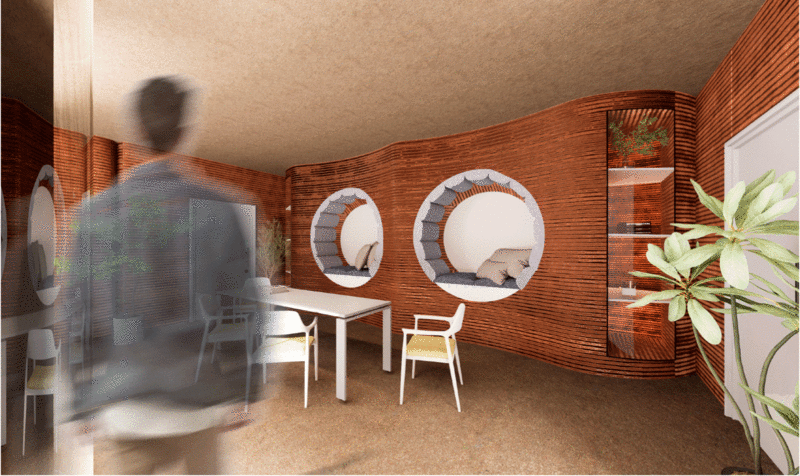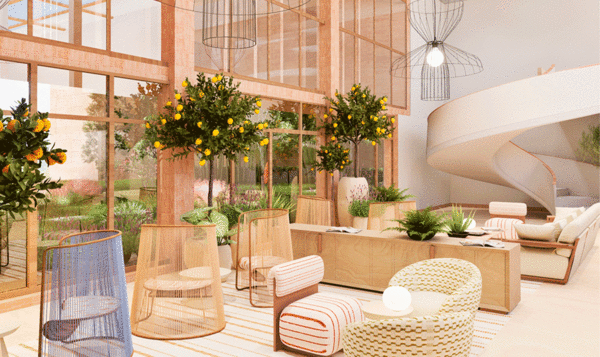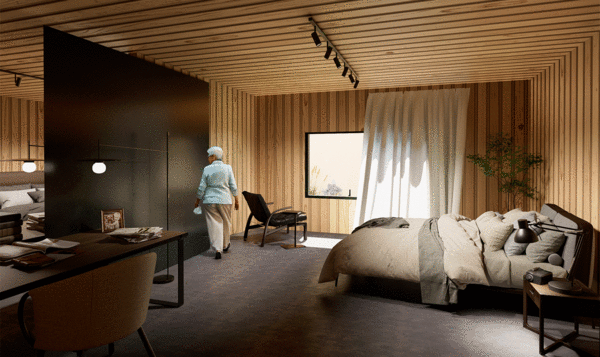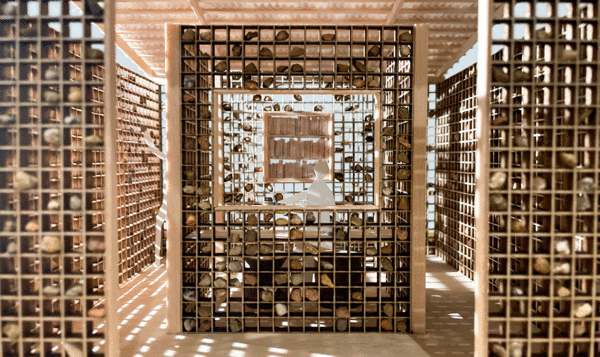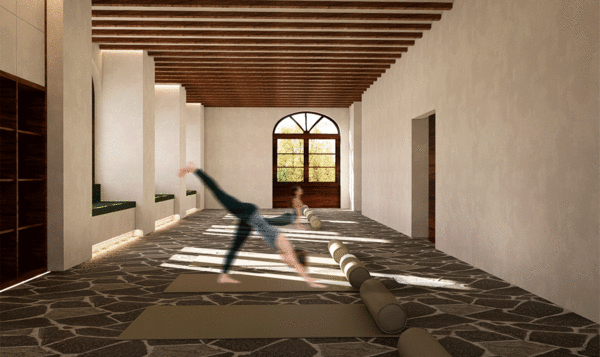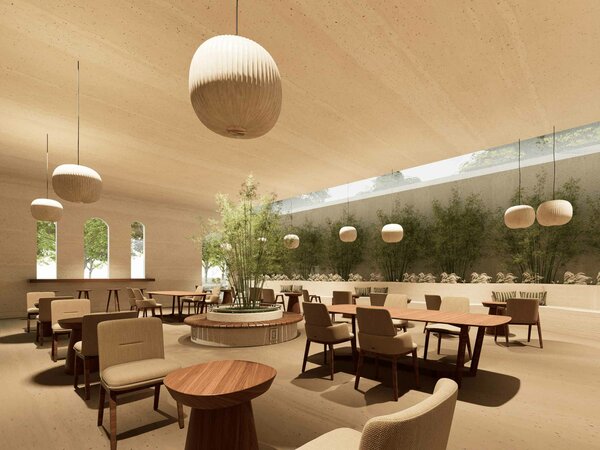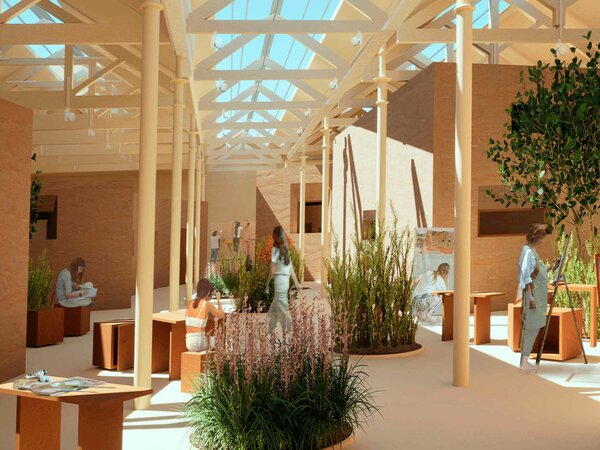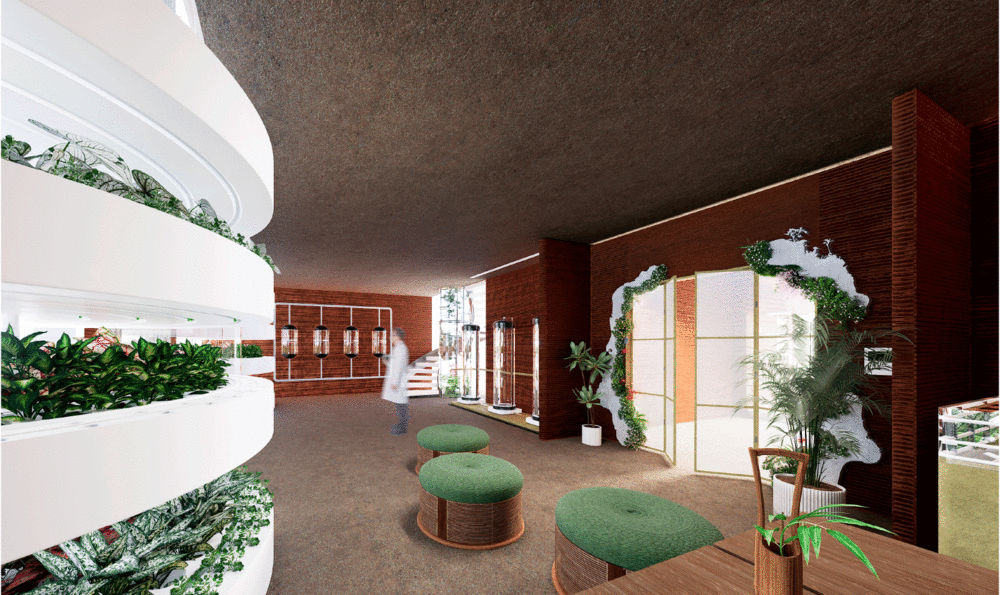
Adaptis VerΔ
IED Barcelona – Student: Lana Mutaz
Academic year
2024/2025
A modular system of pill-shaped pods designed to facilitate the study of the mutation of life on Mars. It includes units for exhibition, agriculture, biotechnology, the development of materials, and sleep.
The thesis investigates the Martian environment and its implications for biological systems, focusing particularly on DNA and RNA mutations in plants and microorganisms as a source of creative potential. Through the choice of materials, spatial logic, modularity and atmosphere, the interiors of ‘Adaptis VerΔ’ are not passive backdrops, but rather active participants in the process of mutation and adaptation.
Be it the mutation capsule, the biotech module, or the plant trays containing species selected for their diversity and symbolic resonance, each space has been designed to serve both a scientific purpose and an emotional experience. Even the customised shutter system, which balances exposure and protection, reflects this duality of care and experimentation.
More than a technical proposal, this project reflects a design philosophy that does not offer answers, but rather open, flexible, and adaptable frameworks for change. ‘Adaptis VerΔ’ thus becomes not only a proposal for Martian habitation, but a metaphor for a new type of architecture: one that thrives on uncertainty and finds power in becoming.
Project by the MarsLife thesis laboratory, in collaboration with IED Rome, the Italian Space Agency (ASI), and Caimi
